Fruits
How to submit an article:
- Registered users can submit any published journal article that has a unique DOI (Digital Object Identifier) name or link to Research Hub.
- For example, you can paste the full DOI link:
https://doi.org/10.1109/5.771073or just the DOI name:10.1109/5.771073into the field above and click submit. - The person who is first to submit a valid article to Research Hub will forever be credited for it, and every article submission earns you +6 Research Points.
Related Topics
Published research studies are articles that present the findings of original research that has undergone a peer-review process and has been made publicly available in scholarly journals, books or other media.
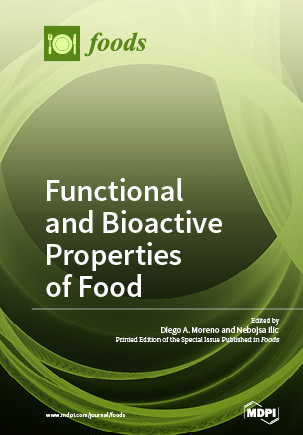
Combined Effects of Ziziphus jujuba, Dimocarpus longan, and Lactuca sativa on Sleep-Related Behaviors through GABAergic Signaling
2023 Dec 19 Foods Bae GY, Ko K, Yang E, Park SS, Suh HJ, Hong KB
Experimental Study Animal Study Longan GABAA blend of jujube seeds, longan fruits, and lettuce leaves significantly increases sleep time in fruit flies and mice.
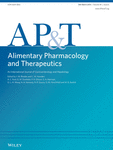
Systematic review and meta‐analysis: Foods, drinks and diets and their effect on chronic constipation in adults
2023 Oct 31 Alimentary Pharmacology & Therapeutics Van Der Schoot A, Katsirma Z, Whelan K, Dimidi E
Review Article Fruits Kiwifruit Rye Bread ConstipationFruits, especially kiwifruits, and rye bread can enhance bowel movements and help manage chronic constipation better than conventional dietary methods.
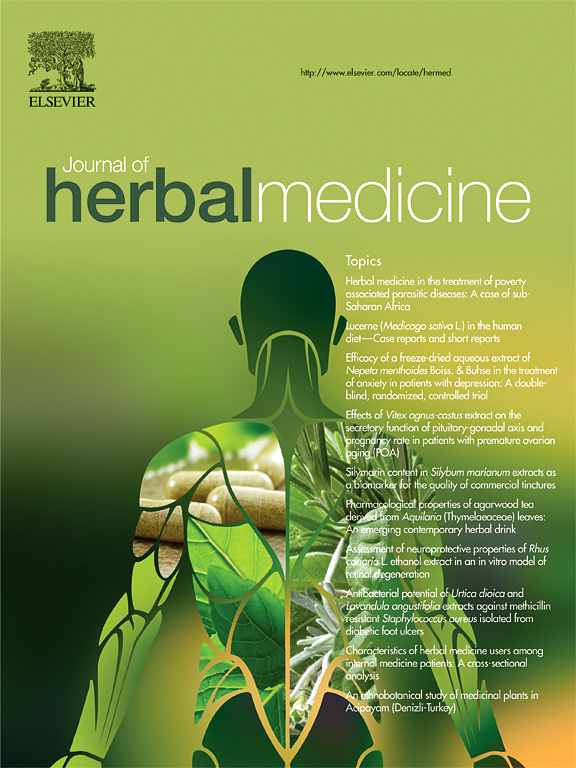
Phytochemistry and biological activities of Citrus sinensis and Citrus limon: an update
2023 Sep Journal of Herbal Medicine Zahr S, Zahr R, El Hajj R, Khalil M
Sweet orange and lemon fruits are rich in secondary metabolites and vitamins, serving as potential sources of antioxidant agents, exhibiting antibacterial, antifungal, and anticancer activities. Further studies are encouraged to explore the therapeutic usage of citrus phytochemicals.
Review Article Anticancer Antifungal Antibacterial Orange Lemon
Cancer prevention and therapy with kiwifruit in Chinese folklore medicine: a study of kiwifruit extracts
2023 Aug Journal of Ethnopharmacology Motohashi N, Shirataki Y, Kawase M, Tani S, Sakagami H, Satoh K, et al.
Network Pharmacology Antioxidant Kiwifruit AntibacterialGold kiwifruit extracts contained different bioactive materials which showed selective cytotoxic activity against human oral tumor cells and displayed anti-HIV, antioxidant, and antibacterial activities.

A systematic review on botany, ethnopharmacology, quality control, phytochemistry, pharmacology and toxicity of Arctium lappa L. fruit
2023 May Journal of Ethnopharmacology Jin X, Liu S, Chen S, Wang L, Cui Y, He J, et al.
Arctii Fructus is regarded as a worthy herb with many chemical components and various pharmacological effects. Several traditional applications have been supported by modern pharmacological research. However, their action mechanisms need to be further studied. Although many chemical components were isolated from Arctii Fructus, the current research mainly focused on lignans, especially arctiin and arctigenin. Therefore, it is very important to deeply clarify the pharmacological activities and action mechanism of the compounds and make full medicinal use of the resources of Arctii Fructus.
Review Article Niu Bang ZiResearch insights are moderated by the Research Hub team and offer an at-a-glance overview of interesting research findings.

2023 Foods
A blend of jujube seeds, longan fruits, and lettuce leaves significantly increases sleep time in fruit flies and mice.
Experimental Study GABA Longan
Combined Effects of Ziziphus jujuba, Dimocarpus longan, and Lactuca sativa on Sleep-Related Behaviors through GABAergic Signaling
Bae GY, Ko K, Yang E, Park SS, Suh HJ, Hong KB

2023 Alimentary Pharmacology & Therapeutics
Fruits, especially kiwifruits, and rye bread can enhance bowel movements and help manage chronic constipation better than conventional dietary methods.
Review Article Constipation Kiwifruit Rye Bread
Systematic review and meta‐analysis: Foods, drinks and diets and their effect on chronic constipation in adults
Van Der Schoot A, Katsirma Z, Whelan K, Dimidi E

2023 Journal of Ethnopharmacology
Gold kiwifruit extracts contained different bioactive materials which showed selective cytotoxic activity against human oral tumor cells and displayed anti-HIV, antioxidant, and antibacterial activities.
Network Pharmacology Antibacterial Antioxidant Kiwifruit
Cancer prevention and therapy with kiwifruit in Chinese folklore medicine: a study of kiwifruit extracts
Motohashi N, Shirataki Y, Kawase M, Tani S, Sakagami H, Satoh K, et al.
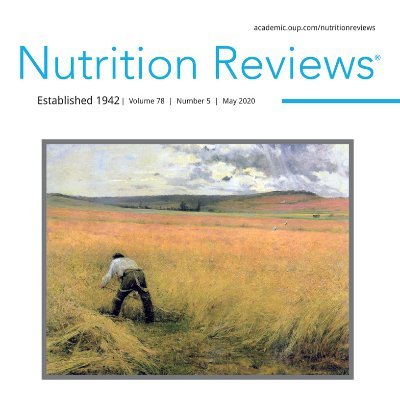
2023 Nutrition Reviews
Berry fruits such as blueberries, cranberries, raspberries, and strawberries could potentially improve gut microbiota and reverse dysbiosis in chronic kidney disease patients.
Review Article Blueberry Chronic Kidney Disease Cranberry Gut Microbiota Raspberry
Blueberry, cranberry, raspberry, and strawberry as modulators of the gut microbiota: target for treatment of gut dysbiosis in chronic kidney disease? From current evidence to future possibilities
Coutinho-Wolino KS, Melo MFS, Mota JC, Mafra D, Guimarães JT, Stockler-Pinto MB
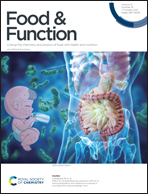
2023 Food & Function
Goji berry leaves have stronger anti-colitis effects than mulberry leaves, ameliorating tissue damage and better regulating inflammatory responses and gut microbiota.
Experimental Study Anti-Colitis Anti-Inflammatory Colitis Goji Berry Leaf Gut Microbiota
Goji berry leaf exerts a comparable effect against colitis and microbiota dysbiosis to its fruit in dextran-sulfate-sodium-treated mice
Yu C, Chen Y, Ahmadi S, Wu D, Wu J, Ding T, et al.
Review Articles
Review articles summarise and critically evaluate the current state of research on a specific topic or field by synthesising multiple primary research studies.

Systematic review and meta‐analysis: Foods, drinks and diets and their effect on chronic constipation in adults
2023 Oct 31 Alimentary Pharmacology & Therapeutics Van Der Schoot A, Katsirma Z, Whelan K, Dimidi E
Review Article Fruits Kiwifruit Rye Bread ConstipationFruits, especially kiwifruits, and rye bread can enhance bowel movements and help manage chronic constipation better than conventional dietary methods.

Phytochemistry and biological activities of Citrus sinensis and Citrus limon: an update
2023 Sep Journal of Herbal Medicine Zahr S, Zahr R, El Hajj R, Khalil M
Sweet orange and lemon fruits are rich in secondary metabolites and vitamins, serving as potential sources of antioxidant agents, exhibiting antibacterial, antifungal, and anticancer activities. Further studies are encouraged to explore the therapeutic usage of citrus phytochemicals.
Review Article Anticancer Antifungal Antibacterial Orange Lemon
A systematic review on botany, ethnopharmacology, quality control, phytochemistry, pharmacology and toxicity of Arctium lappa L. fruit
2023 May Journal of Ethnopharmacology Jin X, Liu S, Chen S, Wang L, Cui Y, He J, et al.
Arctii Fructus is regarded as a worthy herb with many chemical components and various pharmacological effects. Several traditional applications have been supported by modern pharmacological research. However, their action mechanisms need to be further studied. Although many chemical components were isolated from Arctii Fructus, the current research mainly focused on lignans, especially arctiin and arctigenin. Therefore, it is very important to deeply clarify the pharmacological activities and action mechanism of the compounds and make full medicinal use of the resources of Arctii Fructus.
Review Article Niu Bang Zi
Blueberry, cranberry, raspberry, and strawberry as modulators of the gut microbiota: target for treatment of gut dysbiosis in chronic kidney disease? From current evidence to future possibilities
2023 May 10 Nutrition Reviews Coutinho-Wolino KS, Melo MFS, Mota JC, Mafra D, Guimarães JT, Stockler-Pinto MB
Review Article Gut Microbiota Chronic Kidney Disease Strawberry Raspberry Blueberry CranberryBerry fruits such as blueberries, cranberries, raspberries, and strawberries could potentially improve gut microbiota and reverse dysbiosis in chronic kidney disease patients.

Effect of fruit intake on functional constipation: A systematic review and meta-analysis of randomized and crossover studies
2022 Oct 06 Frontiers in Nutrition Huo J, Wu L, Lv J, Cao H, Gao Q
Systematic Review Meta-Analysis Constipation KiwifruitMeta-analysis indicates that fruit consumption, particularly kiwifruits, effectively alleviates constipation symptoms, offering valuable insights into improving gut health.
Clinical Trials
Clinical trials are research studies that involve people and are conducted to evaluate the safety and efficacy of new treatments or interventions, such as drugs, medical devices, or behavioural therapies.
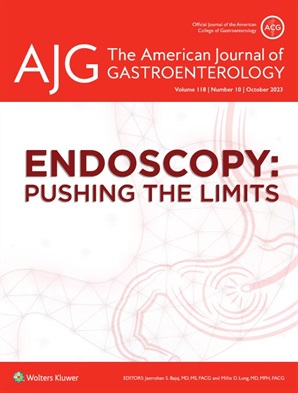
Consumption of 2 Green Kiwifruits Daily Improves Constipation and Abdominal Comfort—Results of an International Multicenter Randomized Controlled Trial
2022 Dec 20 American Journal of Gastroenterology Gearry R, Fukudo S, Barbara G, Kuhn-Sherlock B, Ansell J, Blatchford P, et al.
Randomised Controlled Trial Constipation Kiwifruit Irritable Bowel SyndromeConsuming green kiwifruits is associated with a clinically relevant increase of ≥ 1.5 complete spontaneous bowel movements per week in those experiencing constipation.
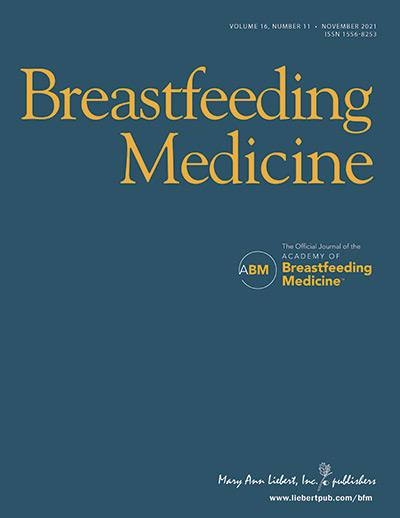
The Effects of Date Fruit Consumption on Breast Milk Quantity and Nutritional Status of Infants
2021 Nov 01 Breastfeeding Medicine Modepeng T, Pavadhgul P, Bumrungpert A, Kitipichai W
Randomised Controlled Trial Breastfeeding Date Fruit GalactagoguesDate fruit consumption appears to be useful for promoting and increasing breast milk quantity in breastfeeding mothers. Date fruits may be an alternative galactagogue.
Study Protocols
Published study protocols are detailed plans that outline the objectives, methodology, statistical analyses, and organisation of a research study that have been made publicly available for others to review and use as a reference.
Presentation Slides

Experimental Study
A blend of jujube seeds, longan fruits, and lettuce leaves significantly increases sleep time in fruit flies and mice.
Bae GY, Ko K, Yang E, Park SS, Suh HJ, Hong KB

Review Article
Fruits, especially kiwifruits, and rye bread can enhance bowel movements and help manage chronic constipation better than conventional dietary methods.
Van Der Schoot A, Katsirma Z, Whelan K, Dimidi E

Network Pharmacology
Gold kiwifruit extracts contained different bioactive materials which showed selective cytotoxic activity against human oral tumor cells and displayed anti-HIV, antioxidant, and antibacterial activities.
Motohashi N, Shirataki Y, Kawase M, Tani S, Sakagami H, Satoh K, Kurihara T, Nakashima H, Mucsi I, Varga A, Molnár J

Review Article
Berry fruits such as blueberries, cranberries, raspberries, and strawberries could potentially improve gut microbiota and reverse dysbiosis in chronic kidney disease patients.
Coutinho-Wolino KS, Melo MFS, Mota JC, Mafra D, Guimarães JT, Stockler-Pinto MB

Experimental Study
Goji berry leaves have stronger anti-colitis effects than mulberry leaves, ameliorating tissue damage and better regulating inflammatory responses and gut microbiota.
Yu C, Chen Y, Ahmadi S, Wu D, Wu J, Ding T, Liu D, Ye X, Chen S, Pan H

Randomised Controlled Trial
Consuming green kiwifruits is associated with a clinically relevant increase of ≥ 1.5 complete spontaneous bowel movements per week in those experiencing constipation.
Gearry R, Fukudo S, Barbara G, Kuhn-Sherlock B, Ansell J, Blatchford P, Eady S, Wallace A, Butts C, Cremon C, Barbaro MR, Pagano I, Okawa Y, Muratubaki T, Okamoto T, Fuda M, Endo Y, Kano M, Kanazawa M, Nakaya N, Nakaya K, Drummond L

Systematic Review
Meta-analysis indicates that fruit consumption, particularly kiwifruits, effectively alleviates constipation symptoms, offering valuable insights into improving gut health.
Huo J, Wu L, Lv J, Cao H, Gao Q
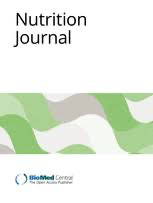
Systematic Review
Higher consumption of dairy foods relates to a decreased risk of endometriosis, while increased intake of red meat and certain fats elevates the risk.
Arab A, Karimi E, Vingrys K, Kelishadi MR, Mehrabani S, Askari G

Bananas and plantains contain compounds with anti-inflammatory, anti-apoptotic, and antioxidative properties that hold promise for potentially reversing neurological disorders.
Oyeyinka BO, Afolayan AJ
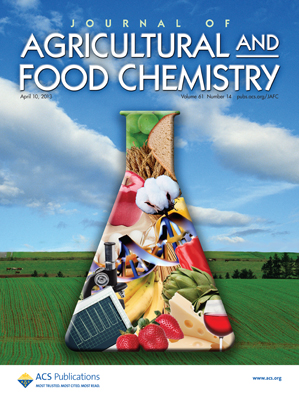
Review Article
Jujube nutrients may offer potential therapeutic benefits including antioxidant, antibacterial, anti-inflammatory functions, and improving sleep quality and learning.
Hua Y, Xu X, Guo S, Xie H, Yan H, Ma X, Niu Y, Duan JA

Review Article
Cherries and blueberries, rich in phenolic compounds, can be effectively used in pharmaceutical products, smart foods, functional beverages, and nutraceuticals to prevent or treat diseases.
Gonçalves AC, Nunes AR, Flores-Félix JD, Alves G, Silva LR
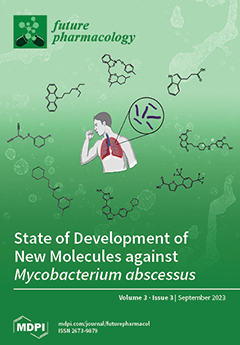
Systematic Review
Eating kiwifruits improves bowel movements and decreases stool consistency, also providing anti-inflammatory and antioxidant benefits to the gut barrier.
Antonelli M, Donelli D

Randomised Controlled Trial
Date fruit consumption appears to be useful for promoting and increasing breast milk quantity in breastfeeding mothers. Date fruits may be an alternative galactagogue.
Modepeng T, Pavadhgul P, Bumrungpert A, Kitipichai W

Review Article
Eating fruits such as blueberry, prunes, kiwi, and raisins positively influences gut bacteria leading to improved bowel movements and constipation relief.
Katsirma Z, Dimidi E, Rodriguez-Mateos A, Whelan K
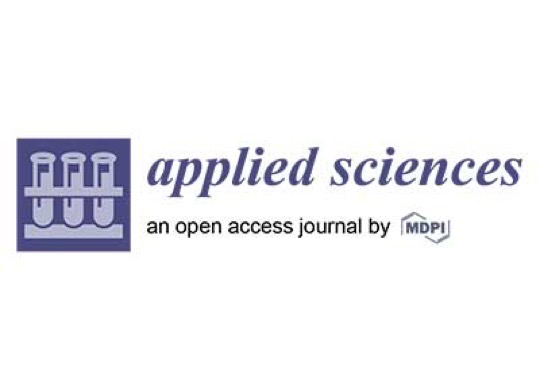
Systematic Review
Eggplant may possibly be used in the treatment of anemia, atherosclerosis, and fatty degeneration.
Meenakshi Sharma and Prashant Kaushik

Theoretical Article
Coffee, like many fruits and vegetables, activates a cellular response that boosts antioxidants and repair enzymes, which contributes to a lower risk of several diseases.
Kolb H, Kempf K, Martin S
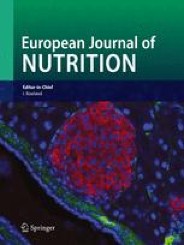
Meta-Analysis
Chronic consumption of cranberry or cherry juice might considerably improve blood pressure levels.
Wang Y, Gallegos JL, Haskell-Ramsay C, Lodge JK

Systematic Review
Eating date fruits seems to reduce gestation duration and duration of the first stage of labor, and also increase cervical dilation on admission.
Nasiri M, Gheibi Z, Miri A, Rahmani J, Asadi M, Sadeghi O, Maleki V, Khodadost M

Experimental Study
The pectin-free fraction from Lycium barbarum fruit exhibits significant antioxidant activity and inhibits the growth of breast cancer cells.
Georgiev KD, Slavov IJ, Iliev IA
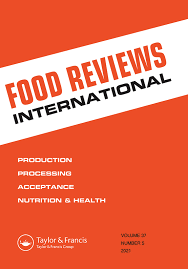
Review Article
Pumpkin seed oil appears effective for improving men's health conditions such as enlarged prostate, overactive bladder, and hair loss due to its anti-inflammatory properties and radical scavenging.
Ramak P, Mahboubi M

Systematic Review
Goji berry was identified as a rich source of antioxidant compounds, with health-promoting properties comparable with other common fruit species.
D. Donno, G.L. Beccaro, M.G. Mellano, A.K. Cerutti, G. Bounous

Systematic Review
The antioxidants present in goji berries have comparable health-promoting properties to those found in other common fruits.
D. Donno, G.L. Beccaro, M.G. Mellano, A.K. Cerutti, G. Bounous

Animal Study
Dried plum intake uniquely improves bone density, promotes growth of vertebral trabecular bone, prevents bone loss in tibia, and positively adjusts bone metabolism.
Rendina E, Hembree KD, Davis MKR, Marlow D, Clarke SL, Halloran BP, Lucas EA, Smith BJ

Review Article
Recent phytochemical studies of jujube fruits have shed some light on their biological effects, such as the anticancer, anti-inflammatory, antiobesity, immunostimulating, antioxidant, hepatoprotective, and gastrointestinal protective activities and inhibition of foam cell formation in macrophages.
Gao QH, Wu CS, Wang M.
Executive Summary
Write an executive summary in the form of a blog article on the topic of "Research into Chinese medicine treatment for Fruits" summarising the research below and using language that can be easily understood by patients and avoiding medical jargon using a professional and caring tone of voice.
Write an executive summary in the form of a blog article on the topic of "Researched Chinese medicine treatments for Fruits" summarising the research below in an objective and easy to understand way, and using language that can be easily understood by patients. Group the article into Chinese medicine treatments first, followed by nutrition and other treatments. Avoid using medical jargon and use a professional and caring tone of voice.
Write me a concise but easy to understand executive summary on the topic of "Chinese medicine treatments for Fruits" based on the following research that I will give you. Your summary should be 2 paragraphs long in Australian English spelling and include references to the studies.
A Experimental Study published in 2023 in the journal Foods found that A blend of jujube seeds, longan fruits, and lettuce leaves significantly increases sleep time in fruit flies and mice. In the methodology of this study, behavioral analyses using fruit flies were carried out to find the optimal combination of extracts from Ziziphus jujuba seeds, Dimocarpus longan fruits, and Lactuca sativa leaves. The experiment further tested this mixture's sleep-enhancing effects on a caffeine-induced sleepless model and via neurotransmitter receptor antagonists in fruit flies. Additionally, ICR mice were used to comprehend the potential effect of the extracts on sleep duration. Discussion of the study's outcomes has indicated that the mixed ratio – particularly 4:1:1 – of the three extracts considerably enhances total sleep time both in the fruit flies and the mice. Moreover, the experiment spotted alternations in gene expression related to GABA receptors, pointing to a probable mechanism underlying the promoted sleep effects.
A Review Article published in 2023 in the journal Alimentary Pharmacology & Therapeutics found that Fruits, especially kiwifruits, and rye bread can enhance bowel movements and help manage chronic constipation better than conventional dietary methods. An exhaustive analysis was conducted incorporating a multitude of studies, including randomized controlled trials and uncontrolled trials, identified through electronic databases till 12th July 2023. The effect of various foods, drinks, and diets on characteristics such as stool output, gut transit time, symptoms, quality of life, adverse events, and compliance in adults with chronic constipation was inspected. The study also examined the response to different treatments and included a variety of foods such as kiwifruit, high-mineral water, prunes, rye bread, mango, fig, cereal, oat bran, yoghurt, water supplementation, prune juice, and high-fibre or no-fibre diets. The synthesized data revealed that the consumption of fruits, particularly kiwifruits, and rye bread led to a higher stool frequency when compared to standard treatments like psyllium or white bread. High-mineral water also proved more effective regarding response to treatment than low-mineral water. On the other hand, no distinctive difference was identified for prunes when set against psyllium as a treatment option. Overall, the study insightfully suggests dietary modifications as a means to manage chronic constipation, emphasizing the potential of fruits such as kiwifruits and rye bread.
A Network Pharmacology published in 2023 in the journal Journal of Ethnopharmacology found that Gold kiwifruit extracts contained different bioactive materials which showed selective cytotoxic activity against human oral tumor cells and displayed anti-HIV, antioxidant, and antibacterial activities. The methodology involved stepwise extraction of gold kiwifruit with hexane, acetone, methanol, and 70% methanol; the extracts were then fractionated using silica gel and ODS column chromatographies to examine their biological activities. Different fractions like H1, H2 (from the hexane extract), A1, A2 (from the acetone extract), and M2 (from the methanol extract) were tested, as well as more hydrophilic fractions from the 70% methanol extract. In the discussion of the results, fractions H1, H2, A1, A2 and M2 displayed notable cytotoxic activity against human oral tumor cell lines, with these showing more sensitivity compared to human gingival fibroblasts. The hydrophilic fractions from the 70% methanol extract demonstrated higher anti-HIV activity, radical generation, and oxygen scavenging activity. However, the antibacterial activity of these fractions was generally lower than that of the more lipophilic (hexane, acetone, methanol) extracts, indicating no distinct antimicrobial action. Interestingly, all fractions were inactive against Helicobacter pylori.
A Review Article published in 2023 in the journal Nutrition Reviews found that Berry fruits such as blueberries, cranberries, raspberries, and strawberries could potentially improve gut microbiota and reverse dysbiosis in chronic kidney disease patients. Methodology: This research explores the therapeutic potential of berry fruits, including blueberries, cranberries, raspberries, and strawberries, in relation to modulating gut microbiota in chronic kidney disease (CKD) patients. The fruit’s rich polyphenol and nutrient content are assumed to promote the selective growth of beneficial bacteria, thus improving the clinical status of these patients. The study scrutinizes the impact on the abundance of mucus-producing bacteria and short-chain fatty acids specifically. Discussion of Results: The gathered evidence illustrates that berry fruits, particularly with a daily intake of 5 mg, can promote diversity in the gut microbiota and possibly reverse dysbiosis, a common issue in chronic kidney disease patients. These fruits are found to increase the expression of mRNA involved in gut tight junctions such as occludin, TJP1, and mucin, and they may reduce uremic toxins by controlling the gut microbiota, improving the uremic condition. As such, long-term use of berry fruits could be an effective strategy for CKD patients.
A Experimental Study published in 2023 in the journal Food & Function found that Goji berry leaves have stronger anti-colitis effects than mulberry leaves, ameliorating tissue damage and better regulating inflammatory responses and gut microbiota. The research entailed a comparative study conducted on goji berry and mulberry leaves versus their respective fruits. To determine their anti-colitis effects, the experiment was administered to C57BL/6N mice that had been induced with colitis through dextran-sulfate-sodium. Through the utilization of measures such as ELISA and western blotting analysis, researchers were able to observe how each leaf versus its corresponding fruit ameliorated colitic symptoms, tissue damage, and was able to influence the overproduction of certain pro-inflammatory cytokines. The results showed that both the goji berry leaf and fruit significantly reduced symptoms of colitis and improved tissue damage while the mulberry leaf did not show similar improvements. The goji berry leaf exhibited the strongest performance in restraining the overproduction of pro-inflammatory cytokines and further repairing the damaged colonic barrier. It also effectively adjusted gut microbiota equilibrium by increasing beneficial bacteria and decreasing harmful ones. The berries and leaves similarly restored certain dietary fibers to alleviate inflammation, but the mulberry leaf did not achieve this for butyrate. This is the first report to provide a comprehensive contrast of anti-colitis effects between the leaves and fruits of goji and mulberry.
A Randomised Controlled Trial published in 2022 in the journal American Journal of Gastroenterology found that Consuming green kiwifruits is associated with a clinically relevant increase of ≥ 1.5 complete spontaneous bowel movements per week in those experiencing constipation. Participants included healthy controls (n = 63), patients with functional constipation (FC, n = 60), and patients with constipation-predominant irritable bowel syndrome (IBS-C, n = 61) randomly assigned to consume 2 green kiwifruits or psyllium (7.5 g) per day for 4 weeks, followed by a 4-week washout, and then the other treatment for 4 weeks. The primary outcome was the number of complete spontaneous bowel movements (CSBM) per week. Secondary outcomes included GI comfort which was measured using the GI symptom rating scale, a validated instrument. Data (intent-to-treat) were analyzed as difference from baseline using repeated measures analysis of variance suitable for AB/BA crossover design. Consumption of green kiwifruit was associated with a clinically relevant increase of ≥ 1.5 CSBM per week (FC; 1.53, P < 0.0001, IBS-C; 1.73, P = 0.0003) and significantly improved measures of GI comfort (GI symptom rating scale total score) in constipated participants (FC, P < 0.0001; IBS-C, P < 0.0001). No significant adverse events were observed.
A Systematic Review published in 2022 in the journal Frontiers in Nutrition found that Meta-analysis indicates that fruit consumption, particularly kiwifruits, effectively alleviates constipation symptoms, offering valuable insights into improving gut health. A meta-analysis of 11 randomized controlled trials (RCTs) examined the effects of fruit consumption on patients with functional constipation. The analysis revealed that fruit consumption, particularly kiwifruits, significantly increased stool frequency, improved stool consistency, and positively impacted microbiota composition, suggesting a potential dietary approach for managing constipation symptoms.
A Systematic Review published in 2022 in the journal Nutrition Journal found that Higher consumption of dairy foods relates to a decreased risk of endometriosis, while increased intake of red meat and certain fats elevates the risk. The study is a systematic review and meta-analysis of observational studies, evaluating the relationship between dietary intakes of specific food groups (dairy, fats, fruits, vegetables, legumes, and meat) and endometriosis risk. The databases PubMed, Scopus, and ISI Web of Science were systematically searched until September 2022 to collect data. To measure the effect size and corresponding confidence intervals, the inverse variance-weighted fixed-effect method was used. There were eight publications included in this study, ranging from a sample size of 156 to 116,607, comprising five cohorts and three case-control studies. The results indicated a link between the risk of endometriosis and dietary intake. A higher intake of total dairy products was associated with a decreased risk, but there was no such association found with either low or high-fat dairy, cheese or milk. Conversely, a higher consumption of red meat, trans fatty acids, and saturated fatty acids showed an association with an increased risk of endometriosis. The results highlight differing associations between dietary practices and endometriosis risk, hinting at the role of diet in the incidence and progression of the condition.
A published in 2022 in the journal Foods found that Bananas and plantains contain compounds with anti-inflammatory, anti-apoptotic, and antioxidative properties that hold promise for potentially reversing neurological disorders. The methodology of the study revolved around scrutinizing the bioactive properties found in bananas and plantains. Researchers pinpointed various neuroprotective mechanisms within commonly consumed fruits, specifically bananas and plantains. The study examined protein expression regulation and targeted specific gene pathways, including nuclear and tumor necrosis factors, extracellular signal-regulated and mitogen-activated protein kinases, activator protein-1, and the glial fibrillary acidic protein. In their investigations, they also considered the underutilized peel components of these fruits. The results suggest that the multitude of bioactive compounds found in both the pulp and peels of bananas and plantains perform a variety of beneficial neuroprotective activities. These range from acting as antioxidants, preventing cell death (anti-apoptotic), and reducing inflammation (anti-inflammatory), to directly influencing the functionality of the nervous system (neuromodulatory). This discovery implicates plant-based foods, specifically bananas and plantains, as potentially significant substances in combating, halting, or mitigating the pathological mechanisms underlying neurodegenerative disorders.
A Review Article published in 2022 in the journal Journal of Agricultural and Food Chemistry found that Jujube nutrients may offer potential therapeutic benefits including antioxidant, antibacterial, anti-inflammatory functions, and improving sleep quality and learning. The methodology used for this study involves a comprehensive review of existing research about Wild jujube, giving particular focus on its phytonutrients, biological functions, metabolism of bioactive compounds, and applications. The study does not seem to detail a specific experimental procedure, but instead bases its conclusions on existing literature. Various parts of the wild jujube plant, such as the fruits, seeds and leaves, were examined for their potential role as food, medicine, or health care aids. The results from the review suggest that the different parts of the wild jujube plant play many roles. The fruits have been noted for their antioxidant, antibacterial, and anti-inflammatory properties, and as ingredients preventing aging. The mature seeds have been found to have potential beneficial effects on central nervous system diseases, particularly in the treatment of insomnia and the enhancement of learning and memory.
A Review Article published in 2022 in the journal Molecules found that Cherries and blueberries, rich in phenolic compounds, can be effectively used in pharmaceutical products, smart foods, functional beverages, and nutraceuticals to prevent or treat diseases. The research primarily studied the health-promoting potential of cherries and blueberries, given their high nutritional density and substantial phenolic compounds. The focus was on their ability to counteract oxidative stress markers and suppress pro-inflammatory responses, which are significant factors in chronic diseases such as diabetes. The researchers analyzed these fruits for their potential incorporation into various products such as pharmaceutical preparations, smart foods, functional beverages, and nutraceuticals. In the discussion of the results, it was emphasized how cherries and blueberries exhibit significant biological potential. They were not only seen as effective in combatting oxidative stress and inflammation but also as potential immune boosters. The conclusions underscored the fruits' potential role as functional foods and their relevance to the burgeoning popularity of functional beverages, hinting at their promise for inclusion in a variety of health-related products.
A Systematic Review published in 2021 in the journal Future Pharmacology found that Eating kiwifruits improves bowel movements and decreases stool consistency, also providing anti-inflammatory and antioxidant benefits to the gut barrier. The review included nine clinical studies investigating the effect of kiwifruit consumption on intestinal function and constipation. The studies, focusing on young or middle-aged adults predominantly, required participants to consume between two to four kiwifruits daily for durations varying from three days to four weeks. The impact on elderly individuals was less explored. The review indicates that kiwifruits can enhance bowel movements and reduce stool consistency in both healthy individuals and those suffering from irritable bowel syndrome-induced constipation. The fiber and water content of kiwifruits is thought to contribute to these results. Furthermore, consumption of kiwifruit showed extra intestinal health advantages, including anti-inflammatory and antioxidant effects on the gut barrier. However, when focusing on patients with constipation, the fruit's consumption correlated with a temporary increase in defecation frequency but inconsistently impacted stool consistency. High-quality methodical studies and meta-analysis substantiated these findings.
A Randomised Controlled Trial published in 2021 in the journal Breastfeeding Medicine found that Date fruit consumption appears to be useful for promoting and increasing breast milk quantity in breastfeeding mothers. Date fruits may be an alternative galactagogue. Breastfeeding mothers who received 10 date fruits/day had an 11% increase in breast milk quantity from baseline to week 2, and a 23% increase from baseline to week 4, (both p < 0.05). The breast milk quantity of the breastfeeding mothers who received date fruits was significantly higher than that of the control group (p < 0.05). However, there were no differences in infant nutritional status.
A Review Article published in 2021 in the journal Food & Function found that Eating fruits such as blueberry, prunes, kiwi, and raisins positively influences gut bacteria leading to improved bowel movements and constipation relief. The research was conducted via a comprehensive review of animal and human studies investigating the impact of various fruits on gut motility and intestinal microbiota. Techniques used to gather data included electronic database searches, hand searches, and expert consultation. Fruits evaluated in the review included blueberries, prunes, kiwi fruit, and raisins, with an emphasis placed on their fiber, sorbitol, and (poly)phenol content. Each fruit's influence was studied in relation to its potential to modify gut microbiota and its consequences on gut motility and constipation. In the subsequent analysis, Blueberry powder was found to influence certain gut bacteria like lactobacilli and bifidobacteria, prunes contributed to the growth of bifidobacteria, kiwi fruit impacted Bacteroides, and raisins had an effect on Ruminococcus. Apart from these, other fruits like apples (through apple fiber isolate), oranges (orange extract), and fig (fig paste) were also cited for their crucial effects on gut transit time and overall digestive health. The mechanism behind these effects, the specific components playing a role, as well as the potential synergistic effects of multiple components were also explored, albeit limitedly.
A Systematic Review published in 2020 in the journal Applied Sciences found that Eggplant may possibly be used in the treatment of anemia, atherosclerosis, and fatty degeneration. Eggplant is progressively becoming more well-known due to its composition of carbohydrates, proteins, vitamins, and several other bioactive compounds, such as phenolic acids. Eggplant also contains traces of minerals such as copper, zinc, and iron. Due to this biochemical composition, eggplant may possibly be used in the treatment of anemia, atherosclerosis, and fatty degeneration. Its antioxidant property potentially reduces the risk of various types of cancer, protects against cardiovascular diseases, and prevents acute respiratory infections. Further, eggplant fibers help in digestion by removing toxins and harmful materials from the stomach and reducing colon cancer. Plant polyphenols present in eggplants can help protect cell membranes and boost the brain’s memory function.
A Theoretical Article published in 2020 in the journal Nutrients found that Coffee, like many fruits and vegetables, activates a cellular response that boosts antioxidants and repair enzymes, which contributes to a lower risk of several diseases. The research paper proposes a new perspective on the health benefits of habitual coffee consumption. Instead of focusing on individual elements in coffee, the study compares coffee as a whole, acting as a plant food, with the advantageous properties of many vegetables and fruits. By linking coffee, vegetables and fruits, researchers identified a common mechanism that promotes health - the activation of an adaptive cellular response which leads to an upsurge of proteins involved in cell protection such as antioxidant, detoxifying and repair enzymes. It was also noted that this response hinges on the activation of the Nuclear factor erythroid 2-related factor-2 (Nrf2) system by phenolic phytochemicals, leading to the expression of cell defense genes. The discussion of the paper's results reveals that coffee plays a significant role in health promotion, the main reason being that it is the primary dietary source of phenolic acids and polyphenols in the developed world. Additionally, a supportive function might be associated with the modulation of the gut microbiota by non-digested prebiotic constituents of coffee. Conclusively, the paper suggests that coffee uses similar health promotion pathways as other vegetables and fruits, and that coffee beans could be seen as healthy vegetable food and a leading supplier of dietary phenolic phytochemicals.
A Meta-Analysis published in 2020 in the journal European Journal of Nutrition found that Chronic consumption of cranberry or cherry juice might considerably improve blood pressure levels. The review involved a comprehensive search across several databases including PubMed, Web of Science, Scopus, and psycARTICLES from the beginning until January 2020. The search results included forty-five randomized controlled trials that lasted at least a week, assessing the effects of berries, citrus, and cherries on different cardiovascular disease risk indicators. These indicators were endothelial function, blood pressure, lipid status, and inflammatory biomarkers. Different preparations of berries including juice of barberry, cranberry, grape, pomegranate, blueberry powder, grape, raspberry and freeze-dried strawberry were studied. The resulting reports showed improvements in endothelial function, inflammation markers, lipid status, and blood pressure. Among the interventions, cranberry juice and cherry juice were notably associated with a potential decrease in systolic and diastolic blood pressure. Consumption of berries led to a significant increase in the levels of sVCAM-1, a protein that is usually found higher in people with cardiovascular risk. However, no significant improvements were observed for other specified fruits in this research.
A Systematic Review published in 2019 in the journal Complementary Therapies in Medicine found that Eating date fruits seems to reduce gestation duration and duration of the first stage of labor, and also increase cervical dilation on admission. In total, 11 and 8 studies were included in the systematic review and meta-analysis. Meta-analysis revealed that date fruit consumption significantly reduced gestation duration, increased cervical dilation on admission, and shorten duration of first stage of labor. Also, it was revealed that date fruit consumption significantly reduced duration of second stage of labor in fixed-effects model; however, this effect was not significant in random-effects analysis.
A Experimental Study published in 2019 in the journal Folia Medica found that The pectin-free fraction from Lycium barbarum fruit exhibits significant antioxidant activity and inhibits the growth of breast cancer cells. In this study, researchers took three portions from Lycium barbarum fruit – total water, pectin-free, and polysaccharide, and analyzed their antioxidant potential using Oxygen Radical Absorbance Capacity and Hydroxyl Radical Averting Capacity assays. The team also examined the pectin-free and the polysaccharide fraction's antiproliferative effects on non-tumorigenic and tumorigenic breast cell lines through the MTT dye reduction assay. The results revealed that the pectin-free fraction from Lycium barbarum fruit demonstrated growth inhibition in a concentration-dependent manner on the three cell lines. This effect was highly pronounced on the breast cancer cells. The polysaccharide fraction showed limited activity, only reducing the proliferation of one type of breast cancer cell at maximum concentration. Surprisingly, pairing the pectin-free and polysaccharide fraction did not produce a synergistic effect. A relationship was observed between the polyphenolic content in the extracts and the resulting effects, with the pectin-free extract containing the most polyphenols and demonstrating the most potent antioxidant and antineoplastic impact against breast cancer cells.
A Review Article published in 2018 in the journal Food Reviews International found that Pumpkin seed oil appears effective for improving men's health conditions such as enlarged prostate, overactive bladder, and hair loss due to its anti-inflammatory properties and radical scavenging. The study methodology entailed the review of various clinical trials that examined the impacts of pumpkin seed oil on different health conditions common in men. These conditions included Benign Prostatic Hyperplasia (a non-cancerous enlargement of the prostate gland), overactive bladder, and androgenic alopecia (a hair loss condition). The decision to focus on these conditions was based on the potential therapeutic value of the biochemical components of the oil, such as its rich contents of essential, highly unsaturated fatty acids and phytosterols. In discussing the results, it was observed that the beneficial effects of pumpkin seed oil in treating the examined health conditions are potentially linked to the oil's contents of phytoestrogens and unsaturated fatty acids. It was suggested that these compounds may inhibit the enzyme 5-alpha reductase, which is an important factor in the enlargement of the prostate and hair loss. Additionally, the oil's anti-inflammatory properties and its capacity to scavenge free radicals might contribute to its therapeutic advantages. Furthermore, it is postulated that the oil may also have a relaxation effect on the bladder sphincter, thereby aiding patients with urination difficulties.
A Systematic Review published in 2015 in the journal Journal of Functional Foods found that Goji berry was identified as a rich source of antioxidant compounds, with health-promoting properties comparable with other common fruit species. A number of things lead to the confusion between the different species and genotypes of cultivated Lycium. In this study, wolfberry was identified as a rich source of antioxidant compounds; the observed analytical fingerprint demonstrated that the species represents a rich source of organic acids and polyphenolic compounds, especially cinnamic acids and catechins; this research suggested that identified nutraceuticals might contribute to the total phytocomplex of these fruits. This study developed an important tool to assess goji chemical composition and bioactivity, using different chromatographic methods for comprehensive authentication and quality control of its fruits: well-designed clinical trials with phytochemically well-characterized extracts are required before the potential of goji as a medicinal plant or food can be definitively assessed. Goji berry fruit is devoid of toxicity but caution is advised with regard to possible drug interactions as well as with products of unknown or dubious origin; for this reason, the development of rigorous quality control protocols for goji products is urgently needed: this research showed that analytical fingerprinting could be an important tool to assess quality, chemical composition, and bioactivity of wolfberry fruits, helping to find new sources of natural health-promoting compounds.
A Systematic Review published in 2015 in the journal Journal of Functional Foods found that The antioxidants present in goji berries have comparable health-promoting properties to those found in other common fruits. The researchers studied the quality traits of goji berries and the levels of potentially fruitful compounds. They employed high-performance liquid chromatography (HPLC) - a technique widely-used to identify and separate components in a mixture - to examine the health-promoting compounds in goji berries, comparing these to what's found in other common fruits. The researchers found that goji berries are a rich source of antioxidant compounds. It was determined that their health-promoting properties are akin to those of other common fruits. The characteristic "fingerprint" obtained through this study could help improve our understanding of this fruit, which is increasingly being recognized as a functional food due to its antioxidant properties.
A Animal Study published in 2013 in the journal PLOS One found that Dried plum intake uniquely improves bone density, promotes growth of vertebral trabecular bone, prevents bone loss in tibia, and positively adjusts bone metabolism. Adult osteopenic mice were subjected to a diet supplemented with 25% of various dried fruits such as dried plum, apple, apricot, grape, and mango for a period of 8 weeks. Body and spine bone mineral density improvement was monitored in these mice, with particular focus on the anabolic effect on trabecular bone in the vertebra and prevention of bone loss in the tibia. The osteoclast differentiation and osteoblast and glutathione activity were also assessed, to better understand the potential mechanisms through which dried plum may exert its osteoprotective effects. The results of the study showed that while dried plum, apricot and grape diets led to improvements in bone mineral density, dried plum was the only fruit that resulted in an anabolic effect on trabecular bone in the vertebra and helped prevent bone loss in the tibia. Biomechanical properties showed restoration, aligning with the changes observed in the spine's trabecular bone. Examining the difference in effects between the various fruits, it was found that dried plum was unique in its ability to balance the down-regulation of osteoclast differentiation and up-regulation of osteoblast and glutathione activity. The alterations in bone metabolism and antioxidant status and their transformative impact on bone health were unique to dried plum when compared with other dried fruits.
A Review Article published in 2013 in the journal Journal of Agricultural and Food Chemistry found that Recent phytochemical studies of jujube fruits have shed some light on their biological effects, such as the anticancer, anti-inflammatory, antiobesity, immunostimulating, antioxidant, hepatoprotective, and gastrointestinal protective activities and inhibition of foam cell formation in macrophages. The nutritional jujube (Ziziphus jujube Mill.) fruit belonging to the Rhamnaceous family grows mostly in Europe, southern and eastern Asia, and Australia, especially the inland region of northern China. Jujube has a long history of usage as a fruit and remedy. The main biologically active components are vitamin C, phenolics, flavonoids, triterpenic acids, and polysaccharides. Recent phytochemical studies of jujube fruits have shed some light on their biological effects, such as the anticancer, anti-inflammatory, antiobesity, immunostimulating, antioxidant, hepatoprotective, and gastrointestinal protective activities and inhibition of foam cell formation in macrophages. A stronger focus on clinical studies and phytochemical definition of jujube fruits will be essential for future research efforts. This review may be useful for predicting other medicinal uses and potential drug or food interactions and may be beneficial for people living where the jujube fruits are prevalent and health care resources are scarce.
Moderation Tools
Topic
Sign In
Users not signed in are limited to viewing the 5 most recent items of content.